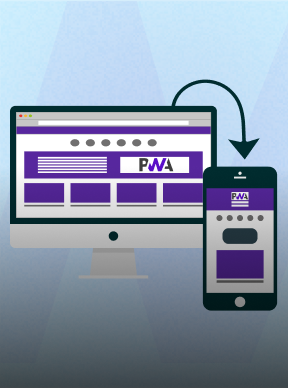The much-anticipated release of Kotlin 2.0.0 the latest version is here, bringing a suite of powerful features and improvements to the table. Central to this update is the stabilization of the Kotlin K2 compiler, which promises enhanced performance and a unified development experience across all supported platforms. This blog delves into the highlights of Kotlin 2.0, exploring the new features and enhancements that developers can now leverage to build more efficient and robust applications.
Introduction of Kotlin 2.0
Kotlin, a modern programming language developed by JetBrains, has quickly become a favorite among developers for its concise syntax, seamless Java interoperability, and powerful features. Since Google's endorsement of Kotlin for Android development in 2017, the language has seen widespread adoption and continuous evolution. The release of Kotlin 2.0 marks a major milestone, introducing significant enhancements and new features designed to boost productivity, performance, and developer experience.
Key Features of Kotlin 2.0
Improved Performance
One of the standout features of Kotlin 2.0 is its enhanced performance. The Kotlin compiler has undergone significant optimizations, resulting in faster compilation times and improved runtime performance. This means that developers can write and test their code more efficiently, leading to quicker development cycles and a more responsive application performance.
Enhanced Type System
Kotlin 2.0 introduces several enhancements to its type system, making it more expressive and safer. The new type system includes support for inline classes, which allow developers to create type-safe wrappers around values without incurring the overhead of object allocation. This feature is particularly useful for creating lightweight abstractions and improving code readability.
Multiplatform Development
Building on its multi platform capabilities, Kotlin 2.0 offers improved support for sharing code across different platforms. With enhanced tooling and libraries, developers can now write code that runs seamlessly on Android, iOS, JavaScript, and other platforms. This reduces duplication of effort and ensures a consistent codebase across multiple environments.
Coroutines Enhancements
Kotlin's coroutines have been a game-changer for asynchronous programming, and Kotlin 2.0 brings even more power to this feature. The new release introduces structured concurrency, which simplifies the management of concurrent tasks and improves error handling. This makes it easier for developers to write safe and efficient concurrent code.
Improved Tooling and IDE Support
JetBrains has always prioritized excellent tooling support for Kotlin, and Kotlin 2.0 is no exception. The latest release includes updates to the IntelliJ IDEA plugin, offering better code completion, refactoring, and debugging capabilities. These improvements help developers write code more efficiently and catch potential issues early in the development process.
Better Java Interoperability
Kotlin has always been known for its seamless interoperability with Java, and Kotlin 2.0 takes this further by enhancing compatibility with Java 17. This allows developers to leverage the latest Java features and libraries in their Kotlin projects, ensuring that they can take advantage of the latest advancements in the Java ecosystem.
Advanced Language Features
Kotlin 2.0 introduces several new language features that make code more expressive and concise. These include improved support for functional programming paradigms, such as better lambda syntax and higher-order functions. Additionally, the new release offers more powerful pattern matching capabilities, enabling developers to write cleaner and more intuitive code.
Community-Driven Enhancements
Many of the features in Kotlin 2.0 are a direct result of feedback from the developer community. JetBrains has actively engaged with Kotlin users to understand their needs and pain points, resulting in a language that is more aligned with real-world development challenges. This community-driven approach ensures that Kotlin 2.0 addresses the most pressing needs of developers and continues to evolve in a way that benefits its user base.
In summary, Kotlin 2.0 represents a significant step forward for the language, bringing a host of new features and improvements that enhance performance, developer productivity, and overall code quality. Whether you're building mobile apps, web applications, or server-side solutions, Kotlin 2.0 offers the tools and capabilities to help you succeed.
Kotlin 2.0 - K2 Compiler: Now Stable and Default

At the core of Kotlin 2.0 lies the stable K2 compiler, a groundbreaking development that unifies all supported platforms: JVM, Native, Wasm, and JS. This powerful compiler not only delivers significant performance improvements but also streamlines the development of new language features and provides a better architecture for multi platform projects.
The K2 compiler's stabilization is a testament to the tireless efforts of the JetBrains team and the Kotlin community. With over 18,000 developers involved in the testing process, spanning a staggering 80,000 projects, the K2 compiler has been rigorously vetted, ensuring its quality and reliability.
Kotlin 2.0 - Smart Cast Improvements:
One of the standout features of Kotlin 2.0 is the enhancement of smart casting capabilities. The Kotlin compiler can now automatically cast objects to their respective types in even more scenarios, saving developers the hassle of explicit casting. These improvements span various areas, including:
1. Local Variables and Further Scopes: With Kotlin 2.0, if a variable is declared outside an if, when, or while condition and evaluated as not null within the condition, the compiler can now access and smart-cast the variable within the corresponding block.
2. Type Checks with Logical OR Operator: When combining type checks with the OR operator (||), the compiler now performs a smart cast to the closest common supertype, eliminating the need for manual type checks after the cast.
3. Inline Functions: The K2 compiler treats inline functions differently, allowing for more accurate smart-casting of captured variables based on the implicit callsInPlace contract.
4. Properties with Function Types: A bug that prevented smart-casting of class properties with function types has been fixed in Kotlin 2.0.
5. Exception Handling: Smart cast information can now be passed on to catch and finally blocks, making exception handling safer and more reliable.
6. Increment and Decrement Operators: The compiler now accurately tracks object types after using increment or decrement operators, preventing unresolved reference errors.
Kotlin 2.0 Multi Platform Improvements: Separating Common & Platform Sources
Kotlin 2.0 brings significant improvements to multiplatform development, addressing a longstanding limitation in the previous compiler. The new K2 compiler strictly separates common and platform source sets during compilation, ensuring that common code cannot access platform code. This change enhances cross-platform consistency and prevents unintended behavior across different platforms.
Additionally, Kotlin 2.0 introduces support for different visibility levels between expected and actual declarations, allowing for more flexible and modular code organization in multi platform projects.
Compiler Plugins Support
The Kotlin K2 compiler now supports several Kotlin compiler plugins, including:
- all-open
- AtomicFU
- jvm-abi-gen
- js-plain-objects
- kapt
- Lombok
- no-arg
- Parcelize
- SAM with receiver
- serialization
- Power-assert
This extensive plugin support enhances the flexibility and functionality of Kotlin projects, allowing developers to integrate various features seamlessly.
Kotlin 2.0 - Compiler Plugins and Experimental Features
Kotlin 2.0 continues to foster innovation by supporting a wide range of compiler plugins and introducing experimental features. Notable additions include:
1. Power-assert Compiler Plugin: This experimental plugin enhances the testing experience by providing contextual information in failure messages, making debugging more efficient and straightforward.
2. Jetpack Compose Compiler Plugin 2.0.0: The Jetpack Compose compiler plugin has been moved into the Kotlin repository, further integrating the popular UI toolkit with the language.
3. Kotlin Symbol Processing (KSP) Plugin Support: Kotlin 2.0.0 supports the KSP plugin since KSP2, enabling advanced code generation and annotation processing capabilities.
Kotlin 2.0 - Performance and Interoperability Enhancements
Across different target platforms, Kotlin 2.0 introduces performance and interoperability improvements that streamline development and optimize application execution.
1. Kotlin/JVM: The new invoke dynamic method for generating lambda functions reduces binary sizes compared to the traditional anonymous class generation approach.
2. Kotlin/Native: Developers can now monitor the performance of the garbage collector (GC) using signposts on Apple platforms, enabling better integration with Xcode Instruments for performance analysis.
3. Kotlin/Wasm: Optimized production builds using Binaryen are now enabled by default, improving runtime performance and reducing binary size. Additionally, support for named exports, unsigned primitive types with @JsExport, and TypeScript declaration file generation enhances interoperability with JavaScript.
Conclusion
Kotlin 2.0 is a monumental release that ushers in a new era of multiplatform development, performance optimization, and language innovation. With the stable K2 compiler at its core, smart cast improvements, multiplatform enhancements, and experimental features like the Power-assert plugin, Kotlin 2.0 empowers developers to write more efficient, cross-platform code with greater ease and confidence. This release marks a significant milestone for the Kotlin community, bringing a host of new features, performance improvements, and better tooling support. Whether you're working on JVM, Native, Wasm, or JS, Kotlin 2.0 offers enhancements that can streamline your development process and improve your application's performance. Dive into the new features and start exploring the possibilities with Kotlin 2.0.0 today!




.svg)

.svg)



.svg)

.svg)







.png)
.png)
.png)



.png)
.png)
.png)



